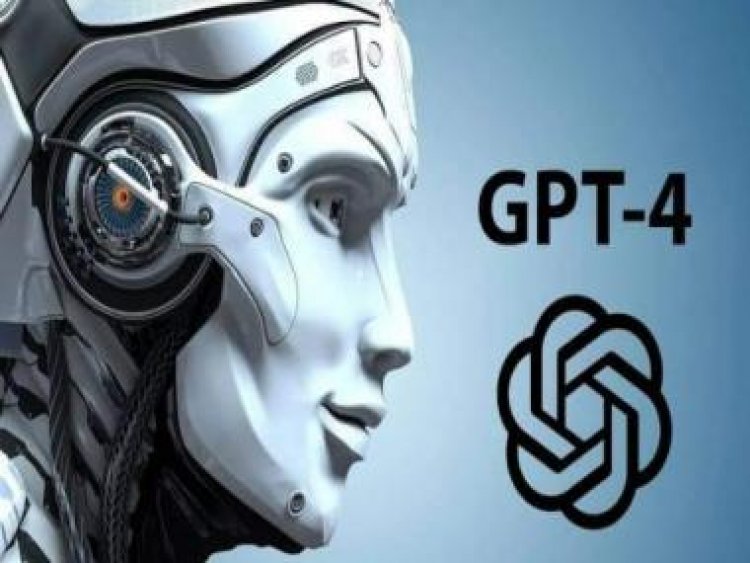The Future of AI: Everything you need to know about GPT-4 and how it will impact apps like ChatGPT
The Future of AI: Everything you need to know about GPT-4 and how it will impact apps like ChatGPT

People who have even heard the buzzword that ChatGPT has become over the months since it was released in November last year will know just how powerful and capable the large language model-based AI generator is. When it was released, ChatGPT was based on GPT-3; later it was updated to GPT-3.5. However, the next big evolution of AI is almost here.
Microsoft has announced that they will be releasing GPT-4 based applications to the public sometime next week. For people even remotely interested in AI and AI-based applications, this is massive.
What is GPT-4?
GPT or Generative Pre-trained Transformer is basically an autoregressive language model, which means that it generates human-like text using a deep learning model, based on textual input.
ChatGPT-4 was announced by Microsoft to come out next week.
It’ll make ChatGPT-3 look like a joke.
This will kick off a new hype cycle for AI coins $FET $AGI $CAI $PRIMAL that are now all at 50% discount compared to last week and should all double if next week remains bullish. https://t.co/58biFAmS0H
— James Bull (@MariusCrypt0) March 12, 2023
GPT-3 was the third generation or rather the third iteration of the Generative Pre-trained Transformer. The major difference between the interactions is the ability of AI bots to understand and generate content based on text. With GPT-3, AI bots made a massive leap in their capabilities of natural language processing, because of which it could generate images and text that was actually much closer to the text prompt than ever before.
With GPT-4, the forthcoming GPT-4 update from OpenAI will allow users to convert text to video, but that’s not all. It will also greatly improve the manner in which GPT-3 works, and make it much faster and quicker than current GPT-3 based applications
According to the German publication Haise, Microsoft Germany’s CTO Andreas Braun said at an AI event last Thursday, that they will be launching GPT-4 to the public for a demo and will soon integrate GPT-4 in most of their AI-based applications.
Microsoft, for those who are unaware, has been a massive investor in OpenAI, the tech startup that launched and published GPT-3 and ChatGPT.
Also read: ChatGPT has started replacing humans in the workplace, US survey reveals
How is GPT-4 better than GPT-3?
Experts believe that GPT-4 and its abilities will make ChatGPT like a rudimentary joke. GPT-4 has a much better modality than GPT-3, meaning that it can operate much better when it comes to texts, as well as images. Furthermore, GPT-4 will also be able to generate videos, based on textual cues.
Multimodality, video processing, and the capacity to produce AI-generated videos from straightforward text prompts are among the new capabilities that the Microsoft-backed startup’s GPT-4 will incorporate. Currently, only text-based responses can be provided by ChatGPT and other technologies powered by GPT-3.5.
In addition to its multimodal capabilities, GPT-4 may be able to solve ChatGPT’s issue with a sluggish response time to user-generated queries.
Moreover, GPT-3 and GPT-3.5-based chatbots often hallucinated – that is, gave out wrong answers and then confidently maintained that their answers were right. GPT-4, apparently, will also deal with this issue and make these AI bots less prone to hallucinations.
What about Google and Meta’s AI?
Google and Meta have their own AI models – Google’s AI bot, Bard which is an experimental conversational AI service, just like ChatGPT is powered by LaMDA. Meta’s AI on the other hand, is powered by PyTorch, an open-source machine learning framework we developed alongside the AI community that is now part of the Linux Foundation.
Also read: Microsoft invests more than $10 billion in ChatGPT’s parent organisation OpenAI
Both, Google Bard and Meta’s AI are actually similar to GPT-4 and can generate videos as well as text. However, there are some glaring issues with both of their AI models because of which the results that these bots generate are not exactly accurate.
Remember when Google demoed their Bard AI and it got an answer wrong? Well, that sent Google’s stock tumbling by $100 billion. Imagine just how disastrous things would have been if the demo had involved a video generation element.
Although OpenAI’s CEO Sam Altman, and CTO Mira Murati believe that GPT-4 is being overhyped, both of them on separate occasions have alluded to the possibility that GPT-4 will be a major paradigm shift.
Read all the Latest News, Trending News, Cricket News, Bollywood News,
India News and Entertainment News here. Follow us on Facebook, Twitter and Instagram.
What's Your Reaction?



























































